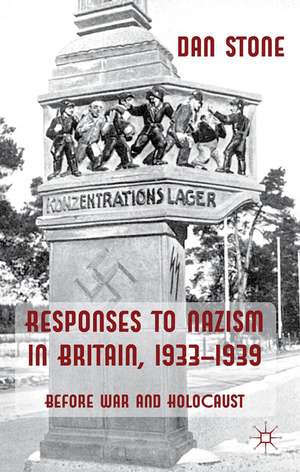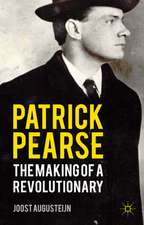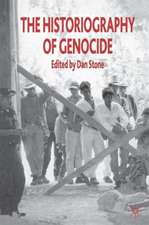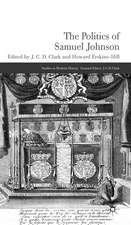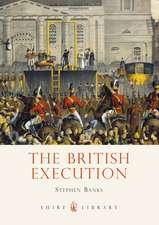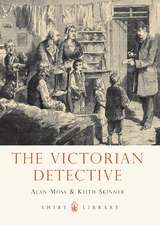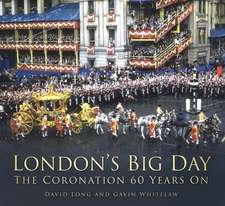Responses to Nazism in Britain, 1933-1939: Before War and Holocaust
Autor D. Stoneen Limba Engleză Paperback – 9 sep 2003
| Toate formatele și edițiile | Preț | Express |
|---|---|---|
| Paperback (2) | 637.59 lei 6-8 săpt. | |
| Palgrave Macmillan UK – 9 sep 2003 | 637.59 lei 6-8 săpt. | |
| Palgrave Macmillan UK – 2012 | 638.43 lei 6-8 săpt. | |
| Hardback (1) | 642.51 lei 6-8 săpt. | |
| Palgrave Macmillan UK – 9 sep 2003 | 642.51 lei 6-8 săpt. |
Preț: 637.59 lei
Preț vechi: 750.11 lei
-15% Nou
Puncte Express: 956
Preț estimativ în valută:
122.00€ • 127.13$ • 101.02£
122.00€ • 127.13$ • 101.02£
Carte tipărită la comandă
Livrare economică 03-17 aprilie
Preluare comenzi: 021 569.72.76
Specificații
ISBN-13: 9781137022455
ISBN-10: 1137022450
Pagini: 269
Ilustrații: XV, 269 p.
Dimensiuni: 140 x 216 x 18 mm
Greutate: 0.34 kg
Ediția:2003
Editura: Palgrave Macmillan UK
Colecția Palgrave Macmillan
Locul publicării:London, United Kingdom
ISBN-10: 1137022450
Pagini: 269
Ilustrații: XV, 269 p.
Dimensiuni: 140 x 216 x 18 mm
Greutate: 0.34 kg
Ediția:2003
Editura: Palgrave Macmillan UK
Colecția Palgrave Macmillan
Locul publicării:London, United Kingdom
Cuprins
Acknowledgements Introduction: Responding to Nazism, 1933-1939 PART I: EXPLANATIONS PRO AND CONTRA The Energy of Nihilism: Understanding the Appeal of Nazism Predicting War? The Place of War in Interpretations of Nazism, 1933-1939 The Quintessence of Nazism: The Third Reich and the Jews, 1933-1939 PART II: THE CULTURAL POLITICS OF THE BRITISH RIGHT The Reasons of the Intellectuals The British Far Right and the Back-to-the-Land Movement The English Array, the BUF and the Dilemmas of British Fascism Conclusion Notes Bibliography Index
Recenzii
'The responses to Nazism in Britain before 1939 were many and varied. The Right, as Nicolson said in July 1939, found it easier, in the interests of cerebral comfort, 'to regard Nazi Germany as a bulwark against Bolshevism than to confront her as a menace to our Empire and our independence' (189). Compelling reading - and should be compulsory for students of the history of the 1930s.' Deborah Vietor-Englander, Technical University of Darmstadt, Germany
'In terms of both its content and its approach Responses to Nazism covers new and/or neglected territory and in particular provides fresh and important insights into the political culture of the right in inter-war Britain. Stone begins with an analysis and contextualization of the work of a number of largely forgotten authors; the writings of people like Franz Borkenau and Aurel Kolnai are rescued from the 'enormous condescension of posterity'. He moves on to examine how British thinkers constructed and responded to the place of war and antisemitism in Nazi thinking.' E. H. H. Green, Magdalen College, University of Oxford, UK
'For those of us with an interest in anti-fascism, it further confirms that our subject is greatly variegated. Stone is right: it is surely time for historians 'to temper their fascination for the activities of British fascists with an understanding of how that fascism was combated'- in print.' Nigel Copsey, University of Teeside, UK 'Superbly written and impressively meticulous fromupdated preface to expansive references Responses to Nazism in Britain deserves attention by all students of interwar Britain and Nazism. Charting the years just before WWII right across the political spectrum, Stone effectively demonstrates that British perceptions of Nazi Germany ranged far wider than simple political 'appeasement' or ideologically naiveté. Highly recommended!' - Matthew Feldman, University of Northampton, UK 'The view the British public took of Hitler and National Socialism in the 1930s is critical for understanding Britain's later decision to fight Germany through six hard years of war. Dan Stone's study of British responses has established itself as the indispensable text on the complex, sometimes ambivalent reaction to fascism and the best starting point for anyone who wants to know why fascism never took root in Britain.' - Richard Overy, University of Exeter, UK
'In terms of both its content and its approach Responses to Nazism covers new and/or neglected territory and in particular provides fresh and important insights into the political culture of the right in inter-war Britain. Stone begins with an analysis and contextualization of the work of a number of largely forgotten authors; the writings of people like Franz Borkenau and Aurel Kolnai are rescued from the 'enormous condescension of posterity'. He moves on to examine how British thinkers constructed and responded to the place of war and antisemitism in Nazi thinking.' E. H. H. Green, Magdalen College, University of Oxford, UK
'For those of us with an interest in anti-fascism, it further confirms that our subject is greatly variegated. Stone is right: it is surely time for historians 'to temper their fascination for the activities of British fascists with an understanding of how that fascism was combated'- in print.' Nigel Copsey, University of Teeside, UK 'Superbly written and impressively meticulous fromupdated preface to expansive references Responses to Nazism in Britain deserves attention by all students of interwar Britain and Nazism. Charting the years just before WWII right across the political spectrum, Stone effectively demonstrates that British perceptions of Nazi Germany ranged far wider than simple political 'appeasement' or ideologically naiveté. Highly recommended!' - Matthew Feldman, University of Northampton, UK 'The view the British public took of Hitler and National Socialism in the 1930s is critical for understanding Britain's later decision to fight Germany through six hard years of war. Dan Stone's study of British responses has established itself as the indispensable text on the complex, sometimes ambivalent reaction to fascism and the best starting point for anyone who wants to know why fascism never took root in Britain.' - Richard Overy, University of Exeter, UK
Notă biografică
DAN STONE Professor of Modern History at Royal Holloway, University of London, UK. He is the author of Breeding Superman: Nietzsche, Race and Eugenics in Edwardian and Interwar Britain (Liverpool University Press, 2002) and Constructing the Holocaust: A Study in Historiography (Vallentine Mitchell, 2003).
